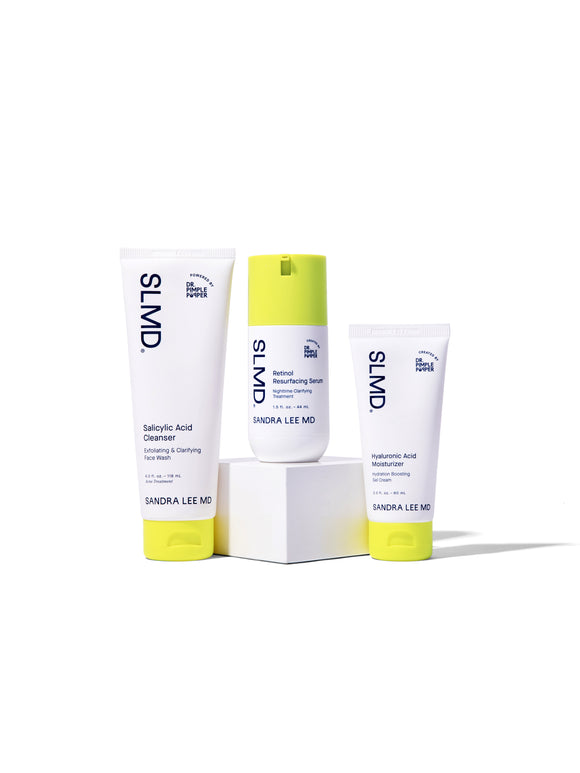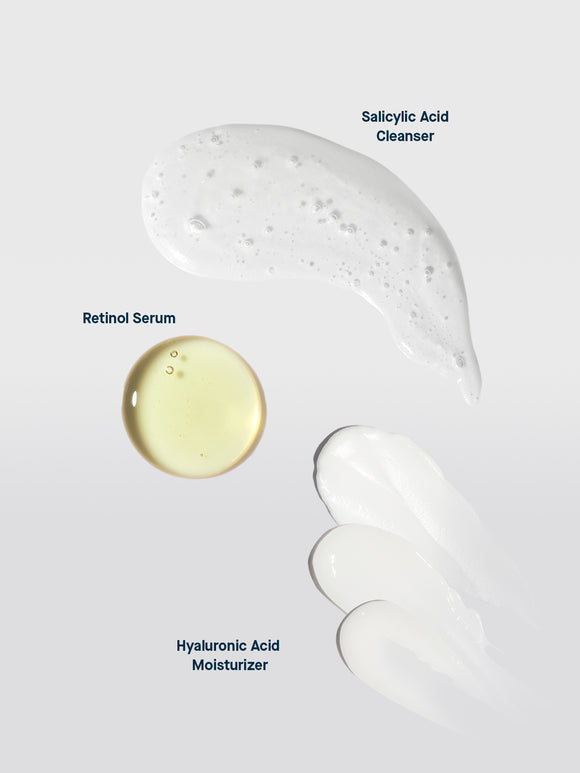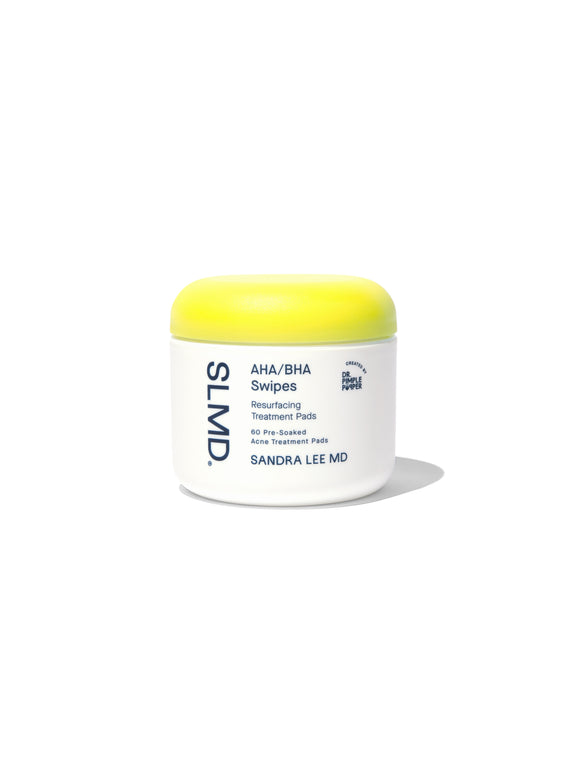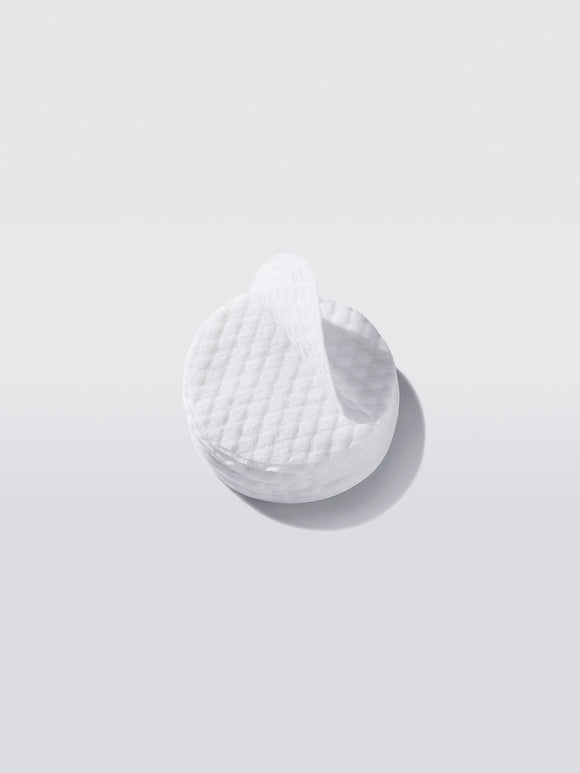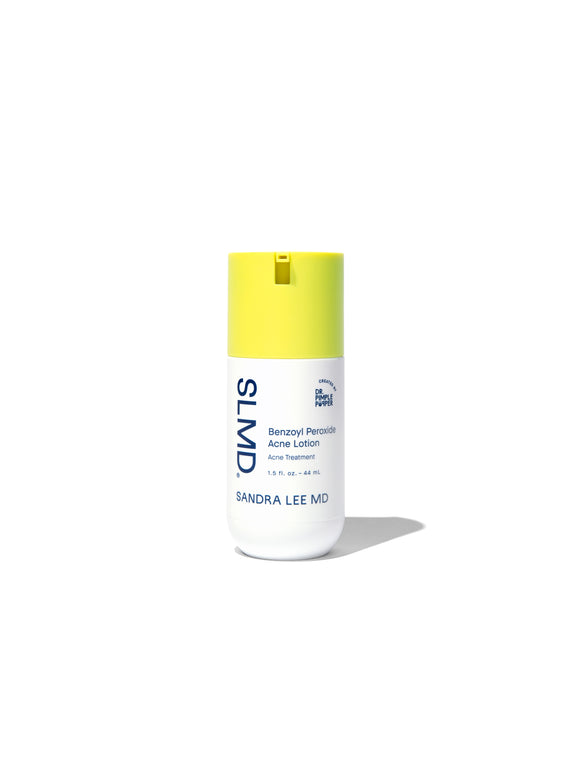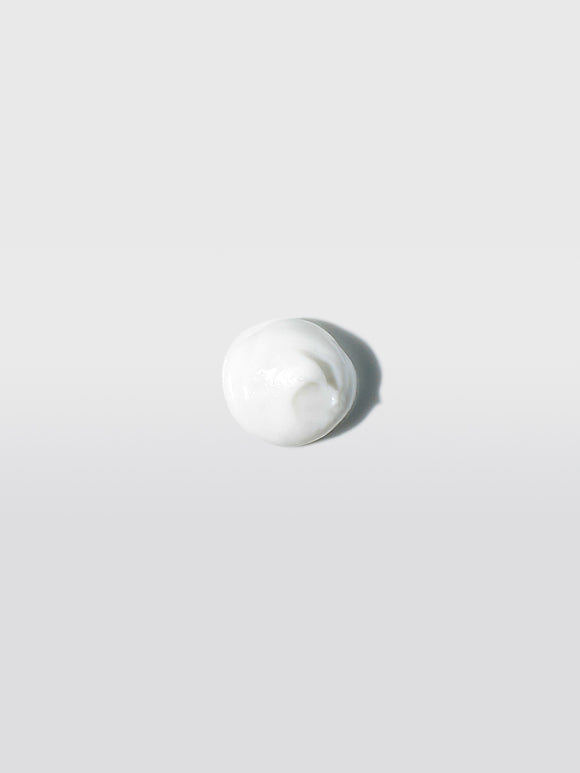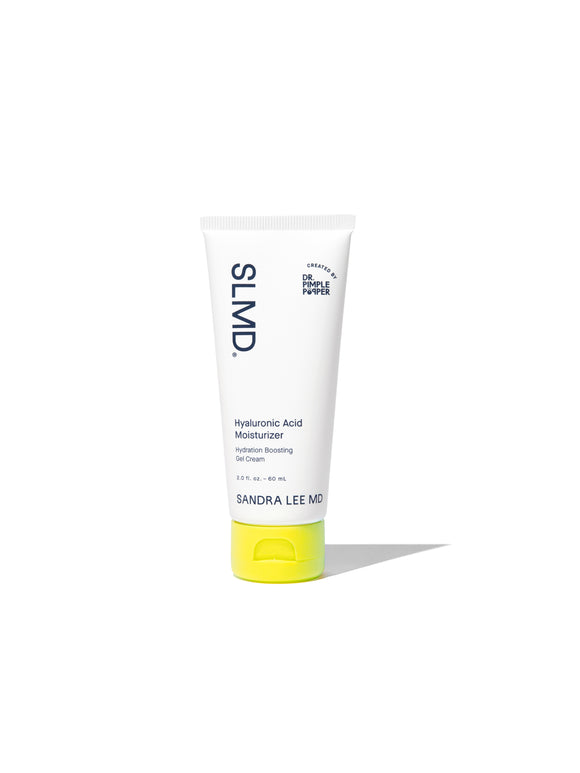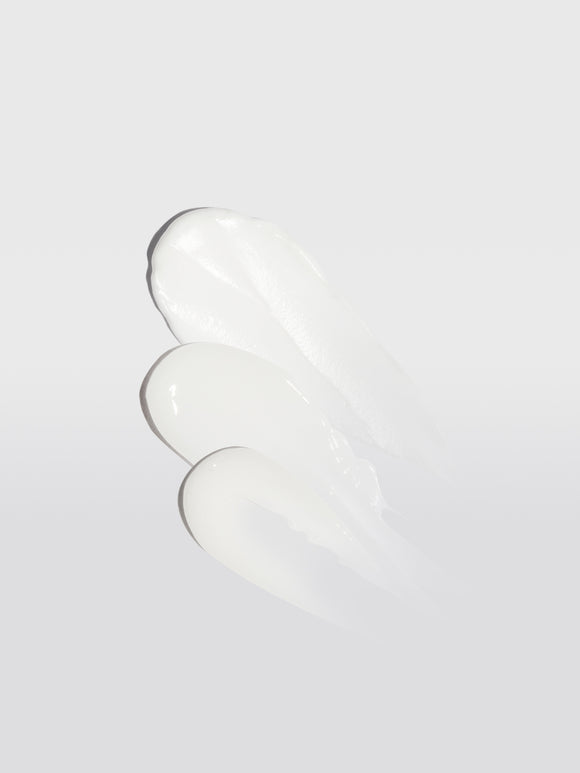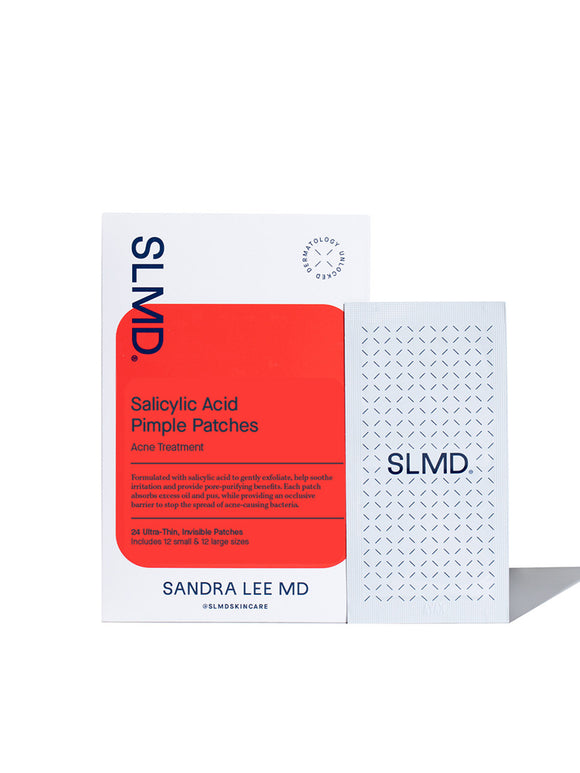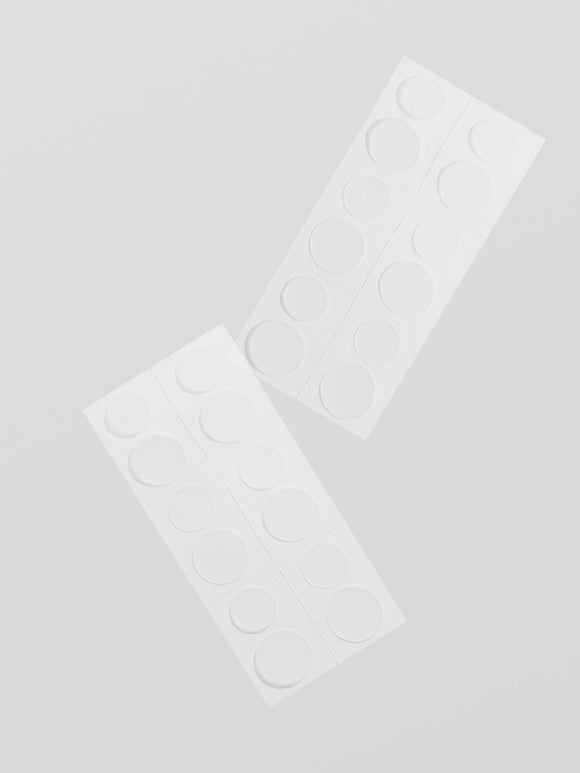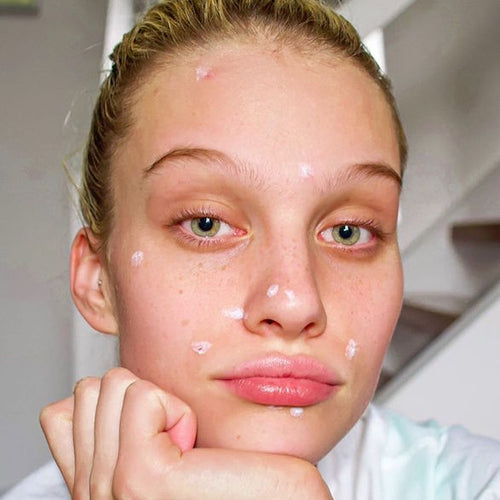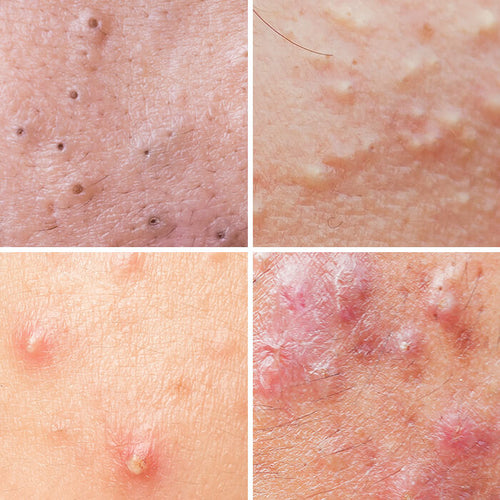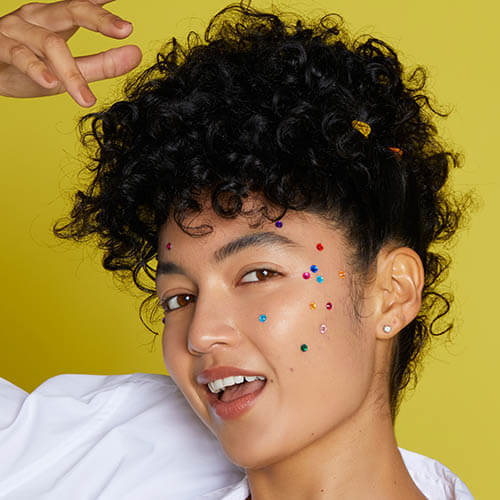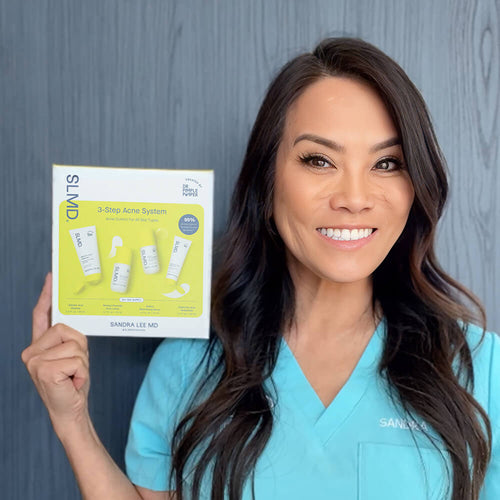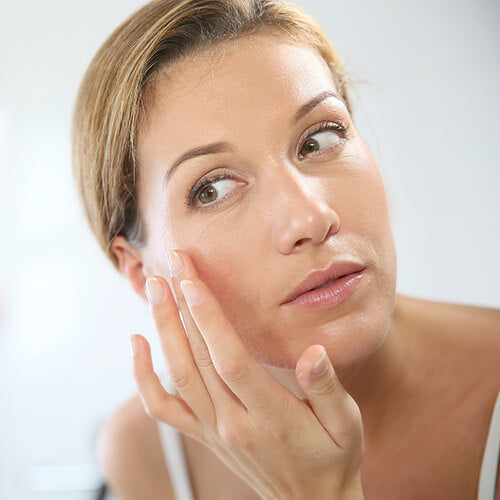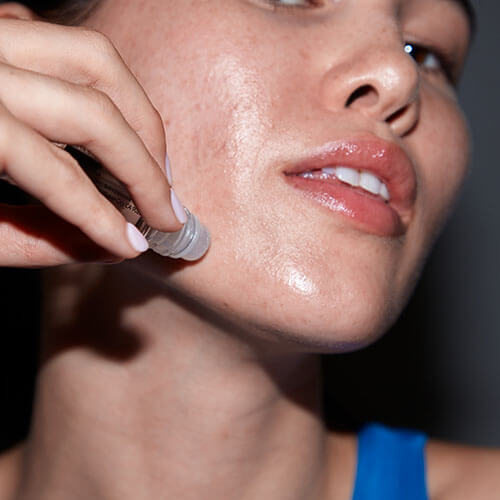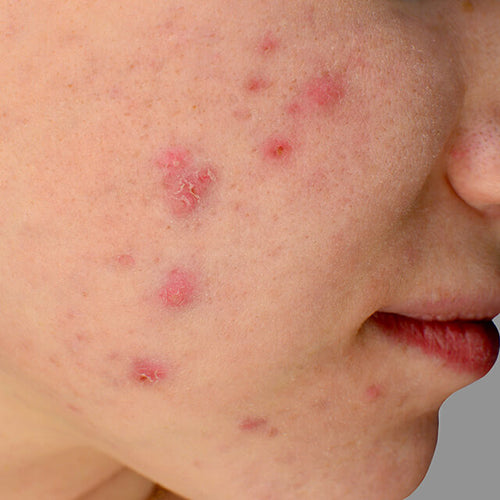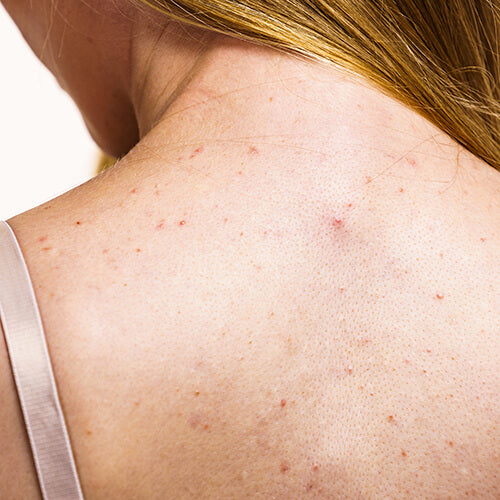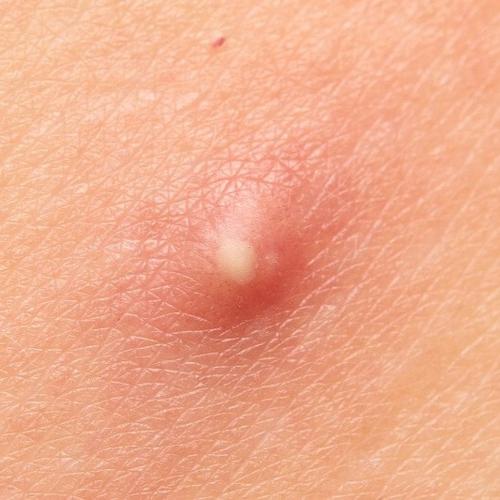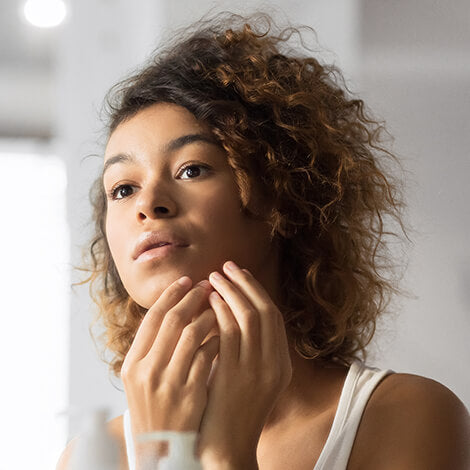
What Is Hormonal Acne — And What Can You Do About It?
Dr. Pimple Popper explains everything you need to know about acne breakouts caused by your hormones.Published:
4 minute read
Here’s the basic truth: hormones and acne go hand in hand. In fact, fluctuations in hormone levels are primarily responsible for the onset of acne during puberty.
So why are some chronic breakouts designated as hormonal acne — and how do you know if you’ve got it? Here, Dr. Sandra Lee (aka Dr. Pimple Popper) answers all your questions — and reveals what you can do to treat and prevent hormonal acne.
Article Quick Links
What is hormonal acne?
All acne is hormone related: testosterone is the main culprit in both males and females, which is why breakouts are generally more prevalent in teen boys. But women have a bit of testosterone too, and it's this androgen that spurs increased sebum production — leading to an increased likelihood of clogged pores and breakouts.
How does your period affect acne?
Here’s a junior high health class recap: women’s hormones (mainly, estrogen and progesterone) shift up and down every month during the menstrual cycle. When those levels fall (like before your period, or during menopause), it creates an imbalance with testosterone — and more testosterone often means more breakouts.
What does hormonal acne look like?
According to Dr. Lee, hormonal pimples look pretty much the same as every other type of pimple — so there’s no way to tell the type just by looking at breakouts. That being said, there are some telltale signs that your adult acne might be causes by hormonal fluctuations:
- Location. Teens tend to experience T-zone acne: centered on the forehead, nose and chin. In contrast, hormonal fluctuations in adult women tend to create , which often appears on the chin and along the jawline or neck.
- Pimple type. Often (but not always), hormonal acne consists of deeper, cystic acne, as opposed to more superficial papules and pustules.
- Timing. As mentioned, breakouts related to your hormonal cycle will appear on a fairly predictable schedule, and/or when you get stressed out — since stress increases levels of cortisol, stimulating androgens.
Dr. Pimple Popper's Hormonal Acne Picks
Is hormonal acne normal?
While changing hormone levels and the associated side effects are often perfectly normal, there are some instances when breakouts can indicate an underlying condition. Dr. Lee says that elevated testosterone levels in women can be a sign of polycystic ovarian syndrome (PCOS), which is a fairly common condition where women develop cysts on their ovaries, triggering increases in testosterone. PCOS can also be associated with deepening of the voice, and even some beard growth. Definitely see your doctor if you’re experiencing unusual symptoms beyond monthly pimple pop-ups.
Does diet affect hormonal acne?
Here’s the official word: maybe. Dr. Lee says that there’s some evidence pointing to a couple of different dietary factors that may (or may not) affect hormonal breakouts:
- Sugar: Some small studies have shown that people who maintain a low glycemic diet may develop fewer pimples. This may be due to the diet minimizing glucose level spikes, since those spikes cause inflammation — which in turn can lead to increase in sebum or oil in our skin.
- Dairy: Elevated hormones found in cow’s milk (but not necessarily yogurt or cheese) can lead to increased breakouts in some people.
- Soy: There is no conclusive evidence that soy and other sources of plant-based estrogens — aka phytoestrogens — impact hormonal acne, and the jury’s still out on just how these plant hormones affect humans.
How do you treat hormonal acne?
The good news: there are things you can do to manage and minimize your hormonal acne. Here are Dr. Lee’s top tips:
- Maintain a good skincare routine. If you’re acne-prone, use over-the-counter anti-acne products. SLMD Acne System is a simple regimen — just 3 steps, morning and night — that helps clear pores and curb acne-causing bacteria.
- Spot treat. When monthly pimples pop up, have a stockpile of targeted treatments like SLMD BP Acne Spot Treatment with benzoyl peroxide, Salicylic Acid Spot Treatment and Salicylic Acid Pimple Patches at the ready.
- Make healthy lifestyle choices. Eating a healthy, balanced diet, getting adequate sleep, and keeping stress levels low will help keep your hormones balanced and your skin functioning optimally.
Should I see a doctor for my hormonal acne?
Generally speaking, you don’t need to consult a doctor to deal with your hormonal acne. However, there are a couple of exceptions:
- If you suspect a clinical hormonal imbalance — i.e., something’s medically wrong — you should talk to your doctor about it.
- If your acne is severe and isn’t responding to topical treatments after at least 3 months of use, it’s a good idea to visit a board certified dermatologist for a consultation.

Dr. Lee's Last Word
Treating hormonal acne can be a frustrating process… but know that there are solutions out there for you! Look for high-quality over-the-counter ingredients like benzoyl peroxide and retinol. If those aren’t cutting it for you, your dermatologist can help you come up with a treatment plan.





